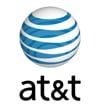 Deciding which cellphone carrier to go with can be daunting. But it's really just dependent on two primary factors -- who has the best coverage in your area and how important high speed data (or 3G as it's called) is. We can provide a general guide, but check coverage maps for the places you use your phone most often before making your final decision.
Deciding which cellphone carrier to go with can be daunting. But it's really just dependent on two primary factors -- who has the best coverage in your area and how important high speed data (or 3G as it's called) is. We can provide a general guide, but check coverage maps for the places you use your phone most often before making your final decision.
There are also basic differences between the technologies used by the carriers. AT&T and T-Mobile use SIM cards, which are simply tiny chips that contain all of your account information (including all your stored phone numbers and other contact information). This makes switching to a new phone as simple as switching out the SIM card. Verizon and Sprint must activate a new phone for you and transfer all your contacts.
If you plan on using your phone overseas, consider the networks you’ll be able to use your phone on there. T-Mobile and AT&T have built their 3G networks on the same standard used by most overseas carriers, including all of Europe, so most of their phones will work overseas as well as in the U.S. Fewer carriers outside the U.S. utilize the technology Verizon and Sprint use for their 3G, high-speed networks. Most notably, it is available in Canada and in some Southeast Asian countries, like Vietnam. So regardless of your carrier, make sure to double check that your phone is capable of international roaming if you plan to use it outside of the U.S.
 Pros: AT&T high-speed data network is much larger than T-Mobile’s and can handle voice calls and data simultaneously, unlike Sprint and Verizon. AT&T's prices are more reasonable than its closest competitor, Verizon, and it is home to Apple's iPhone, one of the most innovative handsets on the market. AT&T’s Family Map, which works on any handset, lets you track and locate other family members using Family Map. AT&T also has the most options when it comes to prepaid plans and phones, though you can always opt for an unlocked handset as well.
Pros: AT&T high-speed data network is much larger than T-Mobile’s and can handle voice calls and data simultaneously, unlike Sprint and Verizon. AT&T's prices are more reasonable than its closest competitor, Verizon, and it is home to Apple's iPhone, one of the most innovative handsets on the market. AT&T’s Family Map, which works on any handset, lets you track and locate other family members using Family Map. AT&T also has the most options when it comes to prepaid plans and phones, though you can always opt for an unlocked handset as well.
Cons: Despite AT&T's theoretical high speeds, in real life its 3G network is often outperformed by Verizon and Sprint. It also can't match the coverage currently offered by Verizon and Sprint, but it is slowly closing that gap.
 Pros: Sprint offers a $99 unlimited everything plan that undercuts Verizon's similar offering by $50 a month. Sprint has a family tracking service that uses GPS, works with any handset, and costs $5 a month. Sprint offers prepaid service through Boost Mobile, which offers the best prices per-minute and per-text message.
Pros: Sprint offers a $99 unlimited everything plan that undercuts Verizon's similar offering by $50 a month. Sprint has a family tracking service that uses GPS, works with any handset, and costs $5 a month. Sprint offers prepaid service through Boost Mobile, which offers the best prices per-minute and per-text message.
Cons: Sprint's data network isn't quite as large as Verizon's, though it's still larger than T-Mobile's and AT&T’s. Sprint also has the slimmest choices when it comes to handsets, but it will be the exclusive home of the highly anticipated Palm Pre when it launches later this year. Boost Mobile's phone options are limited to a few basic Motorola phones.
![]() Pros: T-Mobile offers the best value when it comes to voice service, thanks to its myFaves plans, which let you call up to five U.S. numbers (landline or mobile, even on other providers) without using your anytime minutes, and generally lower prices than other carriers. It also lets you buy unlocked phones from other carriers and manufacturers for use with monthly or prepaid plans. And in case you're really interested in the newest and coolest, it is also the exclusive home for the popular Sidekick and the Google G1.
Pros: T-Mobile offers the best value when it comes to voice service, thanks to its myFaves plans, which let you call up to five U.S. numbers (landline or mobile, even on other providers) without using your anytime minutes, and generally lower prices than other carriers. It also lets you buy unlocked phones from other carriers and manufacturers for use with monthly or prepaid plans. And in case you're really interested in the newest and coolest, it is also the exclusive home for the popular Sidekick and the Google G1.
Cons: T-Mobile has the youngest 3G network of all the carriers, and consequently the least high-speed data coverage. Outside of a few major metropolitan areas, T-Mobile customers are stuck with an aging 2nd generation network, which is fine for light e-mail duty and painfully slow for everything else, including Web browsing.
 Pros: Verizon's 3G network is reliable, if not theoretically the fastest (on paper, at least, AT&T has the fastest network), and covers the most area (according to the carrier's own coverage maps). Verizon also tops J.D. Power's list for call quality across most of the country. Verizon now has a plan, similar to T-Mobile's MyFaves, that lets you call any five numbers (landline or mobile) without using your anytime minutes, though you have to buy a higher priced plan to take advantage of it. Verizon also offers Chaperone, a service which lets you track children and other family members using GPS--though you will need special handsets for both parent and child and the service costs $10 a month.
Pros: Verizon's 3G network is reliable, if not theoretically the fastest (on paper, at least, AT&T has the fastest network), and covers the most area (according to the carrier's own coverage maps). Verizon also tops J.D. Power's list for call quality across most of the country. Verizon now has a plan, similar to T-Mobile's MyFaves, that lets you call any five numbers (landline or mobile) without using your anytime minutes, though you have to buy a higher priced plan to take advantage of it. Verizon also offers Chaperone, a service which lets you track children and other family members using GPS--though you will need special handsets for both parent and child and the service costs $10 a month.
Cons: You'll pay more for both phones and plans compared to other carriers and many Verizon phones won't work outside the U.S.
